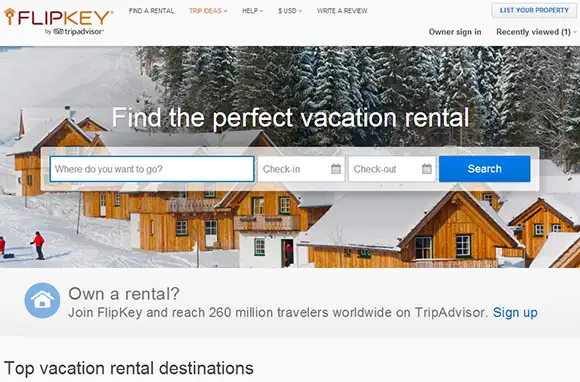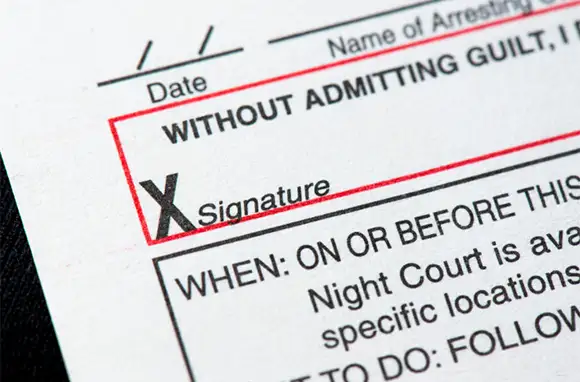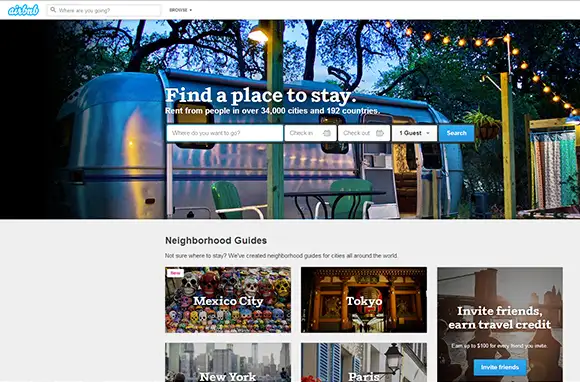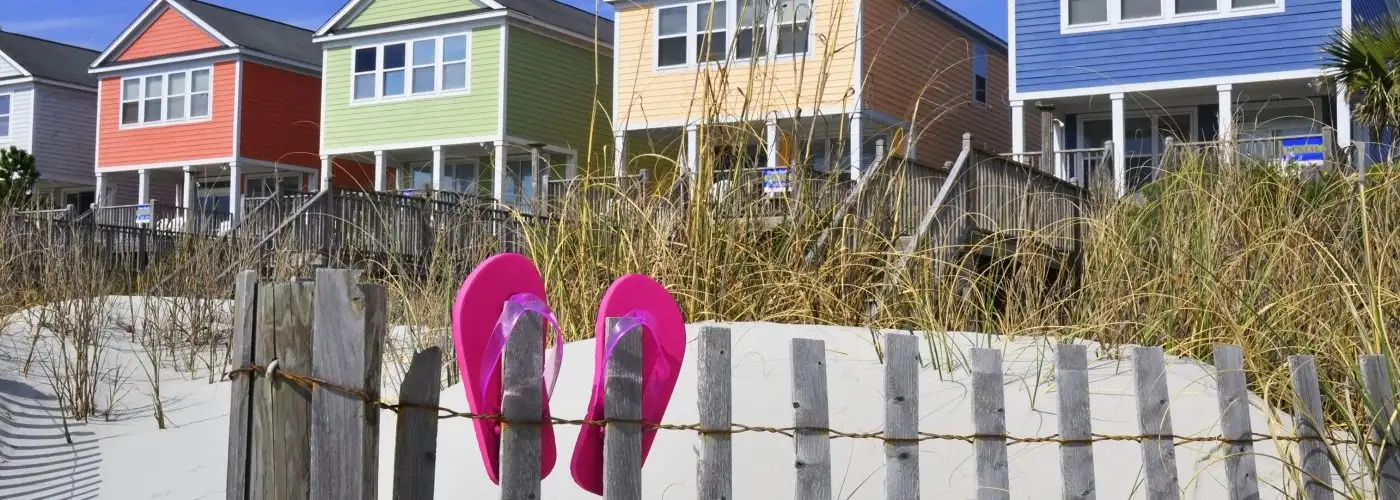Vacation rentals are often great deals: You typically get a lot more space per dollar than in conventional hotel rooms, plus rentals are often in great locations and usually have kitchen facilities that let you cut the cost of some meals. They’re also great for accommodating large families or groups that want to vacation together. But vacation rentals entail certain risks. From legality issues to consumer protections, here are the most important things to know before your next vacation-rental experience.
How to Protect Yourself Against Vacation Rental Risks
Image Gallery

Know the Risks
The worst vacation-rental problems arise when you encounter a serious misrepresentation: a property that is uninhabitable or a place that is already occupied by someone else. You may not even be able to contact the owner for a refund. In this case, your entire payment is potentially a total loss. Minor misrepresentations can also become major annoyances: those promised "just steps" to the beach that turn out to be a couple thousand feet, or that "third bedroom" that is the size of a closet. Ditto on-site glitches such as backed-up toilets, Wi-Fi that doesn't work, or noisy AC, especially if there's nobody around to fix the problem.
Renters almost always pay in full, in advance, often months before the vacation, and whoever has the money has a big advantage. If you encounter payment problems, especially with a foreign owner or an agency, there is essentially no legal recourse or way to obtain redress. You have almost no after-the-fact consumer protections beyond ordinary contract law, and there is no government or trade agency regulating the advertising and sale of rentals. So the best protection is to minimize the risk before you commit to a rental deal.

Know the Risks
The worst vacation-rental problems arise when you encounter a serious misrepresentation: a property that is uninhabitable or a place that is already occupied by someone else. You may not even be able to contact the owner for a refund. In this case, your entire payment is potentially a total loss. Minor misrepresentations can also become major annoyances: those promised "just steps" to the beach that turn out to be a couple thousand feet, or that "third bedroom" that is the size of a closet. Ditto on-site glitches such as backed-up toilets, Wi-Fi that doesn't work, or noisy AC, especially if there's nobody around to fix the problem.
Renters almost always pay in full, in advance, often months before the vacation, and whoever has the money has a big advantage. If you encounter payment problems, especially with a foreign owner or an agency, there is essentially no legal recourse or way to obtain redress. You have almost no after-the-fact consumer protections beyond ordinary contract law, and there is no government or trade agency regulating the advertising and sale of rentals. So the best protection is to minimize the risk before you commit to a rental deal.

Check Out the Property in Advance
Probably the least risky way to arrange a vacation rental is to check it out, personally, before you make any commitment. That means visiting the destination, in advance, and personally inspecting the unit, verifying claims about location, facilities, views, and such, and otherwise assuring yourself that it is exactly what you want. Depending on circumstances, you can sometimes arrive just a day or two early and do this. Or you can visit a destination and scope out rental properties, then go back and rent on a second visit. Also, you can usually rely on recommendations from friends and relatives.
This approach virtually limits all the risk; but, obviously, it's impractical for destinations that aren't easily reachable ahead of time. You likely aren't going to be able to check out a rental in Hawaii, London, or Tuscany in advance, but if you live in Los Angeles, you can check out places in Las Vegas, Mt. Arrowhead, or Laguna Beach just about any time.

Rent a 'Curated' Property
Beyond the solution of renting a place you've visited previously or personally checked out, the best way to minimize risk is by renting through an agency that manages a "curated" list of units. These agencies offer only rentals that staff or representatives have personally vetted, and they act as true agencies, not just bulletin boards, with a contractual responsibility to you as a renter.
Agencies handling curated rentals typically specialize in limited regions—Hawaii, Mexico, London, or France, for example—and offer a limited number of rentals in each location. They also generally specialize in more upscale properties. And their prices tend to be higher than rates on websites that just list rentals submitted by property owners.
Renting a curated property from an established agency pretty well reduces all levels of risk (other than encountering a crooked rental agency). I have personally used At Home in France and Vacanza Bella (Italy); search the Internet for others.

Rent a Managed Property
Lots of vacation rentals are individual units in large condos or residential complexes, and many such are managed by well-known major hotel chains or local on-site management companies. Typically, these units are well maintained, and a resident manager is available to handle problems that might occur during your visit. Unless you encounter some initial glitch in the rental process, you can be reasonably sure that the property was represented accurately and that someone will be around if you have some kind of mechanical problem.
Renting at a condo complex operated by a large multinational hospitality corporation or at another managed property generally reduces all levels of risk.

Use a Travel Agent
Another way to minimize your risk is to arrange a rental through a travel agency. Many agents have firsthand experience with rentals; if not, a good agent will most likely rent through one of the outfits that arranges curated rentals or through a managed property. With a travel agent, you not only have the benefit of experience but you also have an advocate if something goes wrong.

Rent Through a Website with Protections
The largest number of rental offerings can be found on the giant "bulletin board" websites that post listings submitted by owners. They cover the entire world, they usually have a much wider selection of properties than the curated-list agencies, and they include lots of budget options. Although they provide some renter protections, they're not actually party to any rental transactions.
The 800-pound gorilla of rental billboards is HomeAway, an umbrella corporation that operates three different North American websites—HomeAway, VRBO, and VacationRentals—plus 11 others in Europe, South America, Asia, and the Pacific, with a combined worldwide list of more than 650,000 rentals. Its optional guarantee (starting at $39) protects against major problems up to $10,000. SmarterTravel's sister site FlipKey boasts more than 240,000 vacation-rental listings; its staff verifies all owners and automatically includes evaluations from TripAdvisor. Rentalo posts more than 200,000 properties, mostly in the U.S., and offers an optional guarantee program. Roomerama claims more than 120,000 "professionally managed" rentals, concentrated in Europe. Through a combination of size, verifications, and optional guarantee programs, these and comparable websites can reduce all levels of risk.

Rent with a Credit Card
Credit card protections, mandated by law, can protect you against some problems. The Fair Credit Billing Act requires credit card issuers to remove a charge from your bill for any product or service that you paid for but did not receive. To take advantage of this "charge-back provision," you must notify the issuing bank of a problem within 60 days (or 90 days for some banks) of the charge's first appearance on your statement. Alternatively, you have a full year with a charge by a merchant within 100 miles of your home and within your home state—and an online purchase from your home computer is generally treated as having taken place locally.
But in the case of a vacation rental, a charge-back applies only in the worst cases: fraud, or a rental that is unavailable for some reason. Charge-backs do not cover disappointment or dissatisfaction. Even so, using a credit card at least provides a paper/online trail to pursue if something goes wrong.

Make Sure It's Legal
Several popular U.S. vacation destinations, including New York and San Francisco, have enacted regulations that forbid rentals of residential properties for terms shorter than a month. They're concerned, among other things, about safety and sanitation standards, potential loss of affordable permanent housing, and especially loss of hotel-tax revenue. A few important tourist destinations, including San Francisco, are actively prosecuting property owners who violate the statutes, and several are also trying to solve the problem by licensing vacation rentals and assessing local occupancy taxes on renters. Others are still struggling with how to handle the situation.
But agencies are still posting short-term rentals even in places where this is nominally illegal. Although an illegal rental may go quite smoothly, you could become embroiled in a local skirmish between renters, local hotels, and city hall.

Don't Ask for Trouble
As with almost any online purchase, be sensible about advance payments. The basic rule is simple: Never, never pay anyone you don't trust in cash or via a cash equivalent like PayPal. Always leave some sort of trail, even if it's the faint trail you get with a bank transfer or debit card. But credit cards are much better, even when you have to pay a small premium.
Uncertain payment is the big problem with renting a place you find on Craigslist or similar: It may look great, but if the only way to pay is by cash or equivalent, you're taking a big risk.

Do Your Homework
Beyond the curated agencies, managed properties, and giant bulletin boards with their protections, you can find dozens—maybe hundreds—of smaller, more specialized rental websites. Some post thousands of listings worldwide; some concentrate on a single city or even a single unit, with many variations. Many are on the up-and-up and totally legitimate.
But whenever you deal with an agency that doesn't offer some degree of risk limitation, it's a good idea to check out both the rental organization and the individual accommodation when you can. That means, at a minimum, checking with the Better Business Bureau and checking one of the several travel gripe sites mentioned here.

Consider Alternatives
Many large rental websites include some listings for bed-and-breakfasts; some include listings for couch surfing and single-room rentals in homes. If those alternative accommodations are within your scope of interest, check with the websites that specialize in those options, including most big hotel-search systems and BedandBreakfast.com or Airbnb. Individual-room rentals generally present a higher risk of disappointment than conventional rentals, but they also typically involve minimal financial exposure.
Extended-stay hotels, mostly operating as divisions or departments of the big multinational hotel chains, provide accommodations designed for extended occupancy, including some multiroom units. They also typically provide more housekeeping and other hotel-like services than conventional vacation rentals and entail very few risks.
More from SmarterTravel:
- 8 Cheap Alternatives to Staying in a Hotel
- How the Sharing Economy Opens New Doors for Travelers
- Unresolved Complaint? Post a Gripe
We hand-pick everything we recommend and select items through testing and reviews. Some products are sent to us free of charge with no incentive to offer a favorable review. We offer our unbiased opinions and do not accept compensation to review products. All items are in stock and prices are accurate at the time of publication. If you buy something through our links, we may earn a commission.
Related
Top Fares From Dayton, OH
Today's Top Travel Deals
Brought to you by ShermansTravel
Shop and Save with Country Inns...
Patricia Magaña
 Hotel & Lodging Deals
Hotel & Lodging Deals
$229 -- Chicago: Discounted Rates and...
Francesca Miele
 Hotel & Lodging Deals
$229+
Hotel & Lodging Deals
$229+
$188 -- Honolulu: Save on Oceanview...
Abigail Lamay
 Hotel & Lodging Deals
$188+
Hotel & Lodging Deals
$188+




